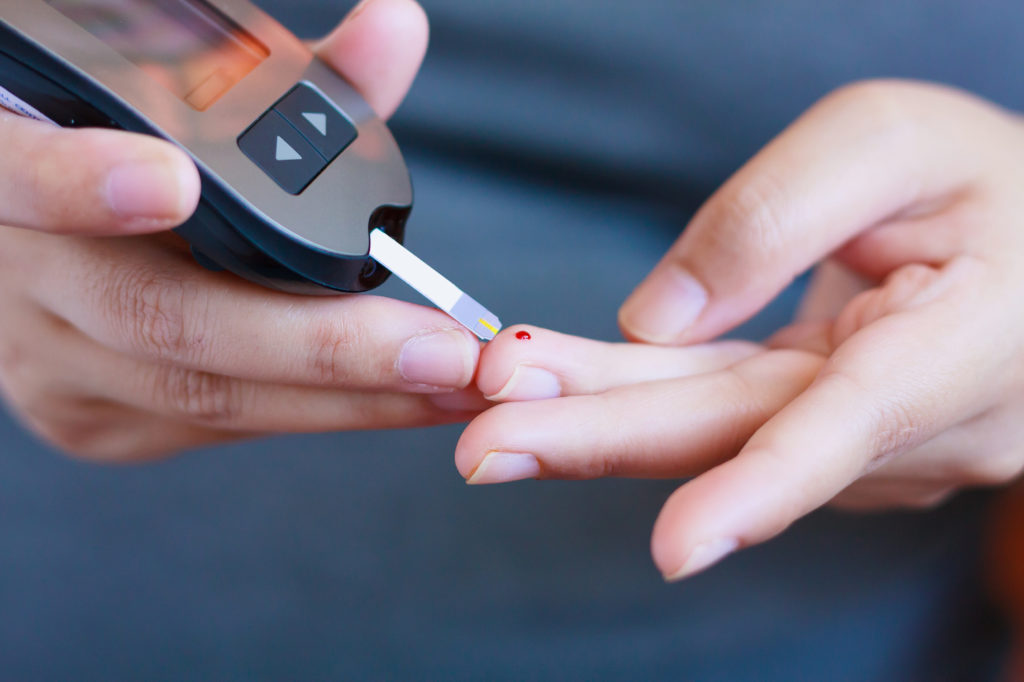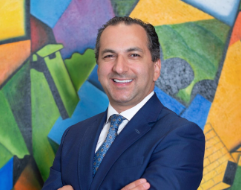
Bariatric surgeries, such as a gastric bypass or gastric sleeve, are performed to help obese people lose the weight they haven’t been able to shed otherwise. But can these procedures help with other factors that affect health as well? Can bariatric surgery actually “cure” type 2 diabetes?
The answer is a qualified “yes.”
“Doctors don’t really use the word ‘cure’ — that has broader implications — but we are seeing many cases where bariatric surgery resolves diabetes or puts it into an open-ended remission, where medication or insulin injections are no longer necessary,” says Soma Weight Loss bariatric surgeon Dr. Joseph Naim. “We often see their insulin levels improve quite quickly after surgery and continue to improve as they get closer to their goal weight.”
To understand how bariatric surgery affects diabetes, it helps to understand a little more about the disease itself:
What is diabetes?
A person who has diabetes has difficulty storing and using sugar, or glucose. This happens because not enough insulin, a hormone that regulates blood sugar, is produced. There are three types of diabetes:
- Type 1: Type 1 diabetes is typically genetic and not preventable.
- Type 2: Type 2 diabetes can be genetic, but it also develops in adults who are overweight, sedentary and/or eat a diet poor in nutrition. It is the most common type of diabetes.
- Gestational: Gestational diabetes happens in some pregnancies, but it usually goes away afterward.
How does diabetes affect the body?
Symptoms of uncontrolled diabetes include:
- Increased thirst and hunger
- Frequent urination
- Fatigue
- Blurry vision
- Tingling or pain in the extremities
Long-term damage can include:
- Increased risk of high blood pressure
- Heart disease, vision problems
- Nerve damage (neuropathy) that can cause numbness or pain
- Poor digestion and skin issues (as in being slow to heal from wounds)
Regular treatment of type 2 diabetes
Exercise and nutrition are important for people with diabetes, and a modified sugar intake is also necessary. People with diabetes test their blood sugar several times a day, usually through pinprick tests. Medications that help the body secrete more insulin or use it more efficiently may be prescribed, and insulin therapy — typically delivered by self-administered injections — may be necessary.
At the extreme, diabetes can contribute to:
- Kidney disease
- Stroke
- Diabetic retinopathy in the eyes, which can lead to blindness, as well as extreme nerve damage in the feet

How does obesity contribute to diabetes?
As we gain weight, we become less sensitive to the natural effects of the insulin we produce, known as insulin resistance, which causes our pancreas to make more to try to keep up. The more weight we gain, the more serious the imbalance.
At some point, the pancreas cannot produce enough, and the body’s management of sugar becomes compromised. Keep in mind that, in addition to processing regular sugar, the body converts other simple carbohydrates — products made with flour, for instance — into glucose, contributing to the body’s load.
When our blood sugar is high and our insulin levels are correspondingly high, it changes our metabolism and increases our levels of inflammation.
How does bariatric surgery help type 2 diabetes?
Anything that helps an overweight diabetic lose a substantial amount of weight has a positive impact on that person’s health. This can be a combination of diet, exercise and prescription medicine, or medical intervention (such as surgery) that limits the amount of calories a person can consume or digest.
In general, patients are accepted for such surgery if they have a body mass index (BMI) of 40 or more or if they have a BMI of 35 or more accompanied by a medical issue like diabetes, heart disease or severe sleep apnea.
The three most prominent types of bariatric surgery are:
- Gastric bypass surgery, where the size of the stomach is reduced to a small pouch that is then connected to the small intestine, bypassing the normal trip through the stomach.
- Gastric sleeve surgery, where the size of the stomach is simply reduced.
- Lap-band surgery, in which a synthetic band attached to an inflatable balloon greatly restricts the size of the stomach.
Gastric bypass and gastric sleeve procedures are receiving recognition for their positive impact on diabetics.
In a Cleveland Clinic Bariatric and Metabolic Institute study of more than 20,000 patients, 84 percent who had gastric bypass surgery experienced “complete reversal” of their type 2 diabetes, according to the report. Blood sugars improved and the need for diabetic medication was reduced or even eliminated.
Dr. Nicholas Stylopoulos, principal investigator of the Division of Endocrinology at Children’s Hospital Boston and Boston Medical School, told Healthline that research suggests the key lies in the intestine. After surgery, the small intestine begins to produce a molecule called GLUT-1 — ordinarily present only in developing fetuses — that helps the body use glucose. This may happen because the intestine has to work harder after surgery to absorb nutrients or move the food through the body’s digestive system.
“Diabetes is complicated, and the reversal of diabetes can be similarly complicated,” Dr. Naim says. “But there is substantial evidence that bariatric surgery can help.”

Take the next step: Contact Soma Weight Loss
The decision to have bariatric surgery shouldn’t be made lightly; you should explore it with the help of a doctor knowledgeable about the procedures who can help you decide what is right for you. The staff at Soma Weight Loss, a Los Angeles bariatric surgery clinic, is here to help. If you have questions or would like to schedule a consultation, please contact us or call us toll-free at 855-766-2411.




